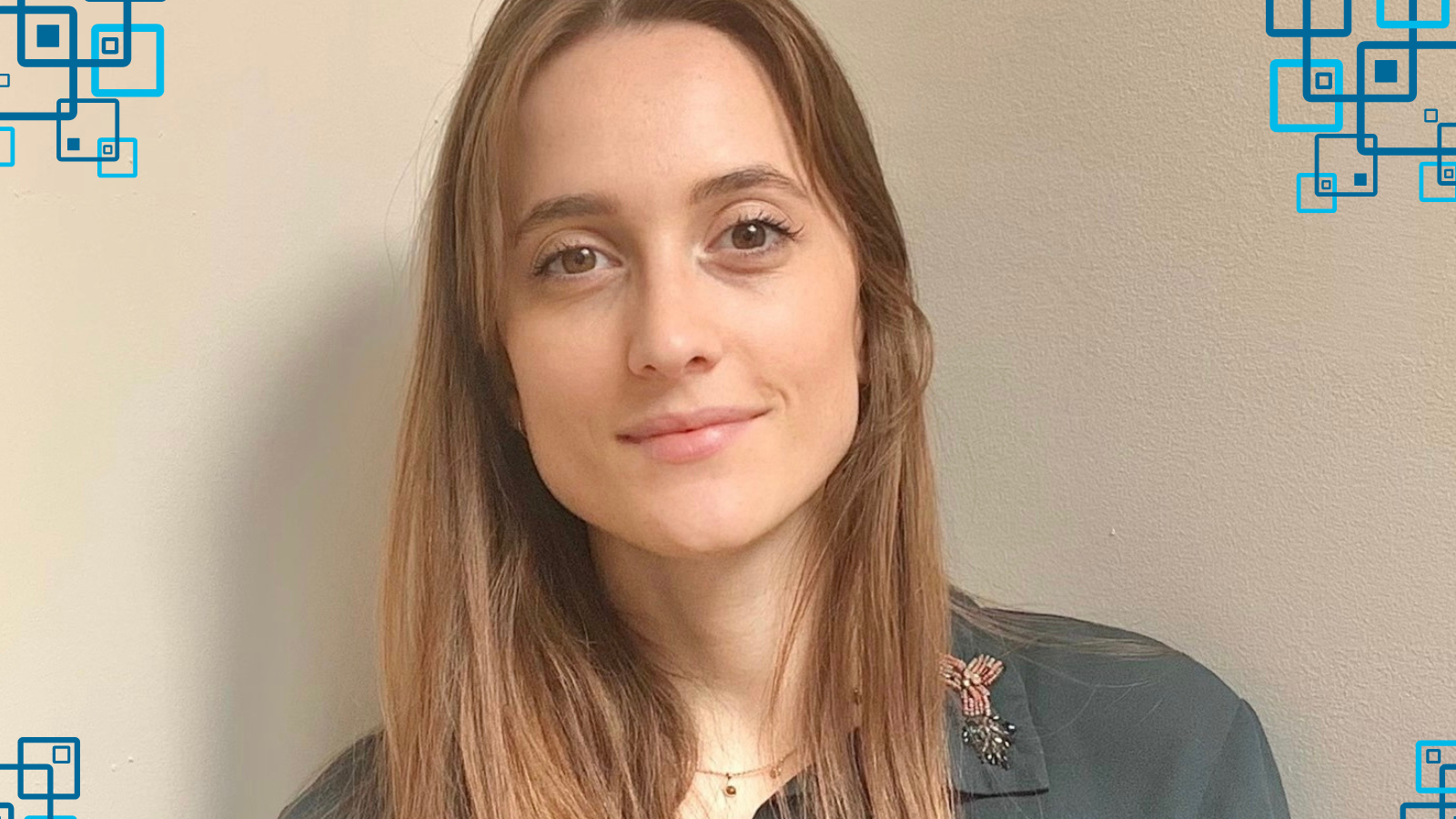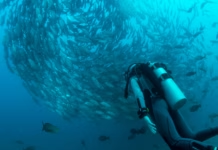In honor of International Women’s Month, The Planetary Press is highlighting women around the globe who are driving positive change for our planet and global community. Today, we are thrilled to introduce you to the Executive Director of the Global Pact Coalition, Victoria Lichet.
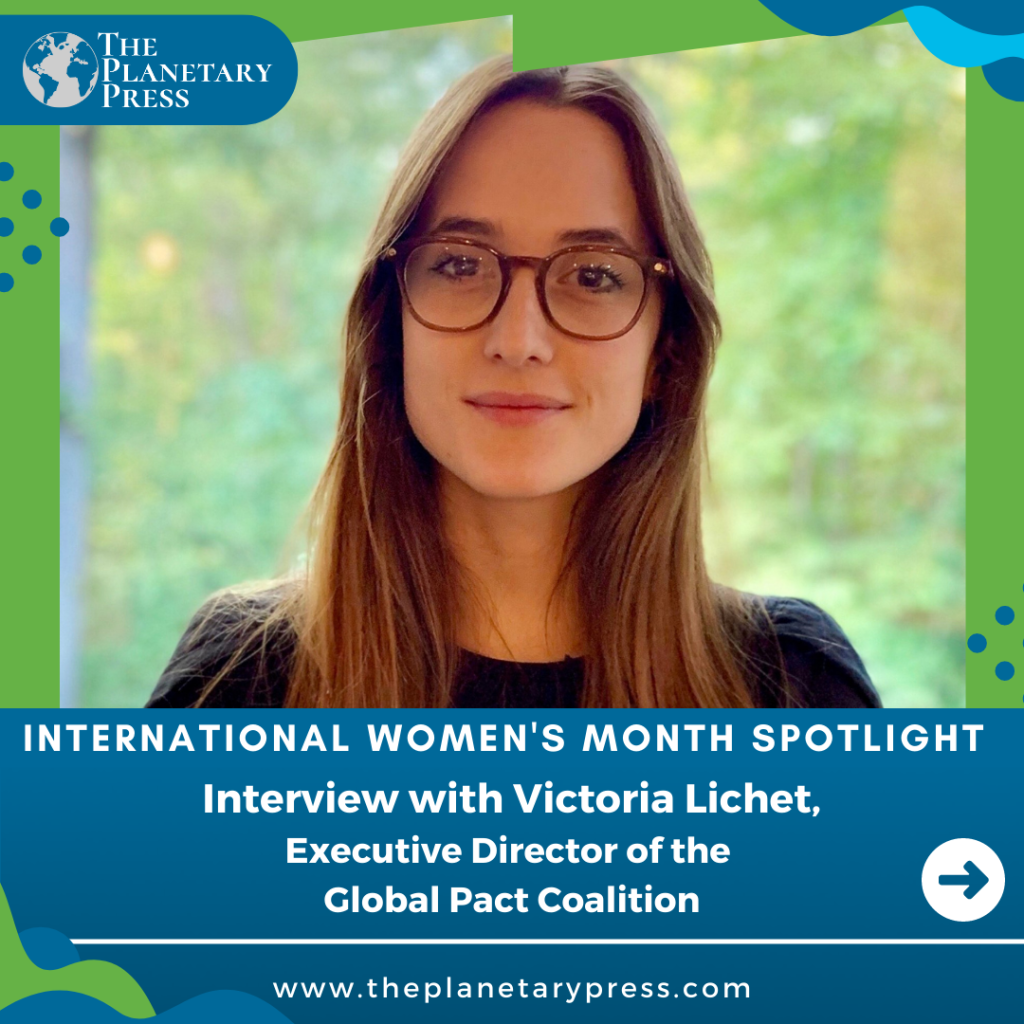
You have a remarkable career as an attorney and environmental advocate. Please tell our audience more about yourself and what inspired you to pursue environmental law.
I was first inspired to pursue a law degree because I felt this was my only way to defend those who cannot defend themselves. I later decided to pursue environmental law specifically because the environment is worsening and started to become a source of concern for our future and future generations. Environmental threats have become increasingly urgent, and it’s critical to take effective action to protect the planet. I wanted to use my legal skills to make a difference in the world by advocating for stronger environmental protections and fighting against pollution, climate change, and other environmental threats. I saw environmental law as a powerful tool to preserve the natural world so that future generations can enjoy the same beauty and benefits I have experienced.
I also realized that environmental pollution could seriously impact human health, so part of my passion for environmental law is to help ensure that our air, water, and soil are clean and safe for all people to enjoy. Environmental law can make a real difference in the world. By advocating for stronger environmental protections and fighting against environmental degradation, we can have a significant impact on the health and well-being of communities and the planet.
You are the Executive Director of the Global Pact Coalition. Can you tell us about the work you do there and your mission?
The Global Pact Coalition aims to build a global movement in support of the recognition of a new generation of fundamental rights and duties related to the protection of the environment and, in particular, the right to a healthy environment.
As the Executive Director, my main missions, apart from managing day-to-day operations of the coalition, are setting strategic goals for the adoption of a legally binding global instrument and coordinating efforts with other civil society organizations and Indigenous peoples organizations that have a similar purpose.
For example, in 2022, with many other organizations, we conducted advocacy work to favor the adoption of a resolution recognizing the right to a healthy environment at the UN General Assembly, which was adopted on July 28th, 2022. We are currently coordinating efforts for the recognition of the right to a healthy environment in an additional protocol to the European Convention on Human Rights.
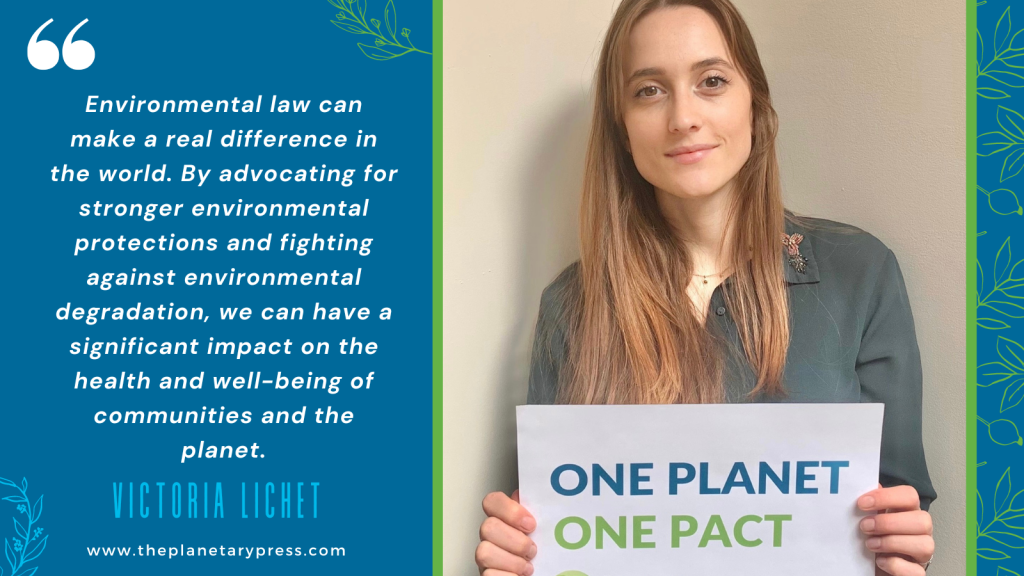
What’s up next for the Global Pact for the Environment?
Following the recognition of the right to a clean, healthy, and sustainable environment as a human right by the UN Human Right Council (48/13 of October 2021) and the UN General Assembly (76/300 of July 28th, 2022), we believe that a legally binding global instrument to reaffirm and implement this right is necessary. So, we are now focused on the adoption of a legally binding global instrument on the implementation of the right to a healthy environment, such as a third Covenant. It does not matter if the instrument is called ‘Global Pact for the Environment’ or if it is a “charter,” “treaty,” “convention,” or any other name, as long as it is a legally binding global instrument.
Our main goal is to promote such an instrument to ensure the effectiveness of the right to a healthy environment. For this purpose, it is absolutely crucial that States also recognize other environmental rights, duties, and principles inherent to the right to a healthy environment and provide for concrete implementation and monitoring measures.
By the way, the pathway from a non-legally binding resolution to a legally binding instrument is not uncommon in international law. For instance, the Universal Declaration of Human Rights of 1948 was, at first, a part of the UN resolution on the International Bill of Human Rights. This UN resolution then resulted in two fundamental human rights instruments adopted in 1966: the International Covenant on Economic, Social, and Cultural Rights and the International Covenant on Civil and Political Rights. So, both covenants have been adopted to give legal effect to the Declaration. We hope that, in the same way, a legally binding global instrument on the right to a healthy environment will give binding legal force to UNGA resolution 76/300.
It took 18 years to incorporate the Declaration into two legally binding texts, though. We cannot wait 18 years. That would bring us to…2040! The triple planetary crises call for State leaders to urgently negotiate and adopt a legally binding instrument that would recognize a third generation of human rights: after our civil and political rights, and our economic, social, and cultural rights, it would recognize our environmental rights.
In addition to your role with the Global Pact, you are the Co-Chief Operating Officer of the Global Network for Human Rights and the Environment. Can you share more about the organization and the work you do there?
The Global Network for the Study of Human Rights and the Environment (GNHRE) is an excellent network of researchers, policymakers, opinion formers, and community activists who produce and exchange on the interrelation between human rights and the environment.
As part of the core team (composed of three other amazing women I truly admire), we work to ensure the network produces genuine change through new legal and advocacy initiatives for a better environmental future. For example, we organized a consultation with experts for the development of the Committee on the Rights of the Child’s General Comment on the environment with a special focus on climate change under the Convention on the Rights of the Child. This General Comment could reinforce recognition of the children’s right to a healthy environment. To help experts prepare for this consultation, we co-authored a White Paper on the child’s right to a healthy environment. I also led a GNHRE working group of environmental law professors for the draft of an advocacy letter addressed to UNGA Ambassadors urging them to support and co-sponsor the adoption of the resolution recognizing the right to a healthy environment.
Last year, the UN General Assembly recognized the right to a clean, healthy, and sustainable environment as a universal human right. Given your expertise, how can this historic ruling be used in environmental litigation in the future?
This UNGA resolution is a significant development in the field of environmental law. Actually, both the UN Human Right Council resolution of October 2021 (48/13) and the UNGA resolution of July 28th, 2022 (76/300) are significant as they outline that a consensus is strengthening in favor of environmental rights. Although they are not legally binding, they sent a symbolic message and will, hopefully, have far-reaching implications for environmental and human rights.
As David Boyd noted, these resolutions should incite more governments to recognize the right to a healthy environment in their domestic legislation. Most importantly, we (at the Global Pact Coalition) believe these resolutions can become the bedrock of a legally binding global instrument reaffirming and implementing the right to a healthy environment and other fundamental rights and duties.
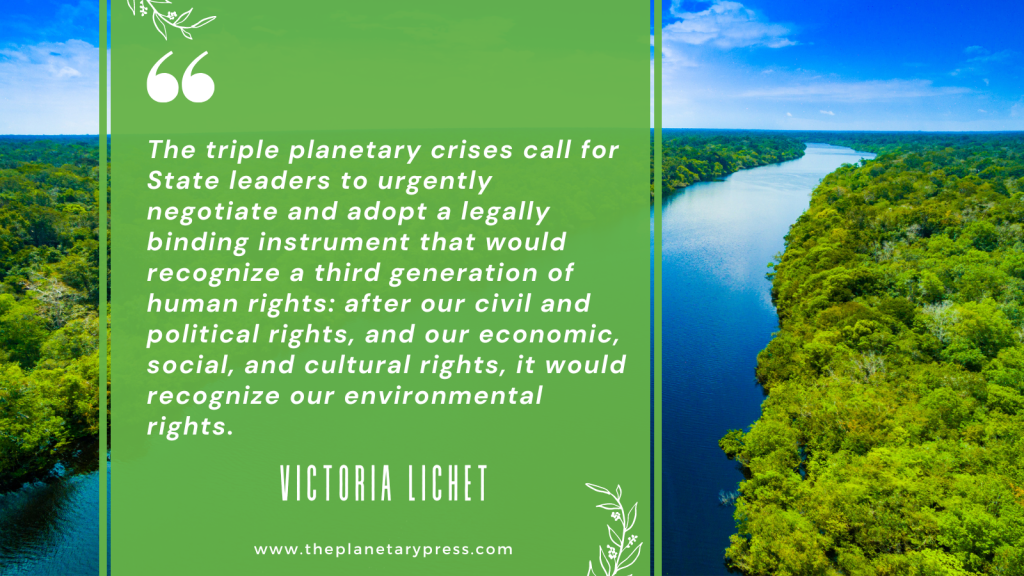
What book would you recommend to inspire people?
There are so many I would like to recommend, but here are my top 3:
“All We Can Save: Truth, Courage, and Solutions for the Climate Crisis,” co-authored by many women, is a powerful read. It will inspire you to never give up on our collective future.
“Silent Spring” by Rachel Carson is a compelling scientific book for general readers packed with verifiable research and data. It was first published in 1962 and is (unfortunately) still relevant in 2023.
I also really enjoyed reading “Exposure: Poisoned Water, Corporate Greed, and One Lawyer’s Twenty-Year Battle against” by Robert Bilott. Truly inspiring.
What advice would you have for your 13-year-old self?
These are basic but so important:
Believe in yourself. You can achieve great things if you believe in yourself and your abilities. Don’t let self-doubt or fear hold you back from pursuing your dreams and aspirations.
Understand that success is not just about talent or luck but also about putting in the hard work and staying focused on your goals.
Don’t be afraid to ask for help and to seek guidance and support from others.
Be kind and respectful, and treat others the way you would like to be treated.
Keep up with Victoria and the Global Pact Coalition!
Website:
https://globalpactenvironment.org/
*Will soon become: https://greenrightscoalition.org/
Social Media:
Twitter: @VictoriaLichet
LinkedIn: @Victoria Lichet

